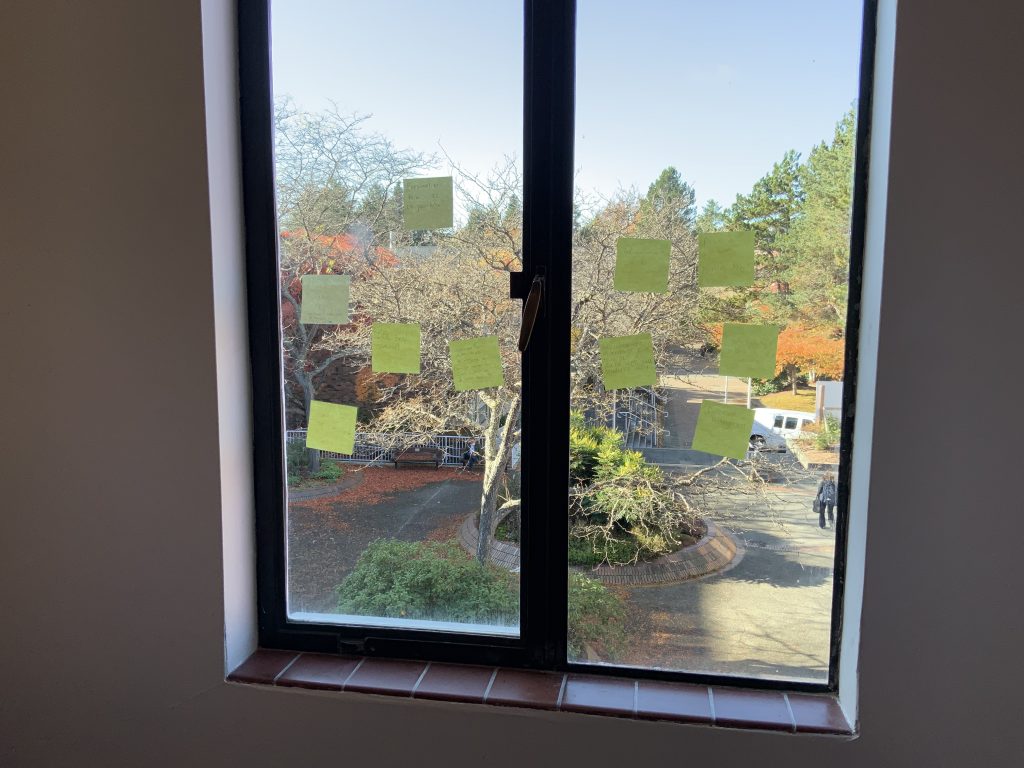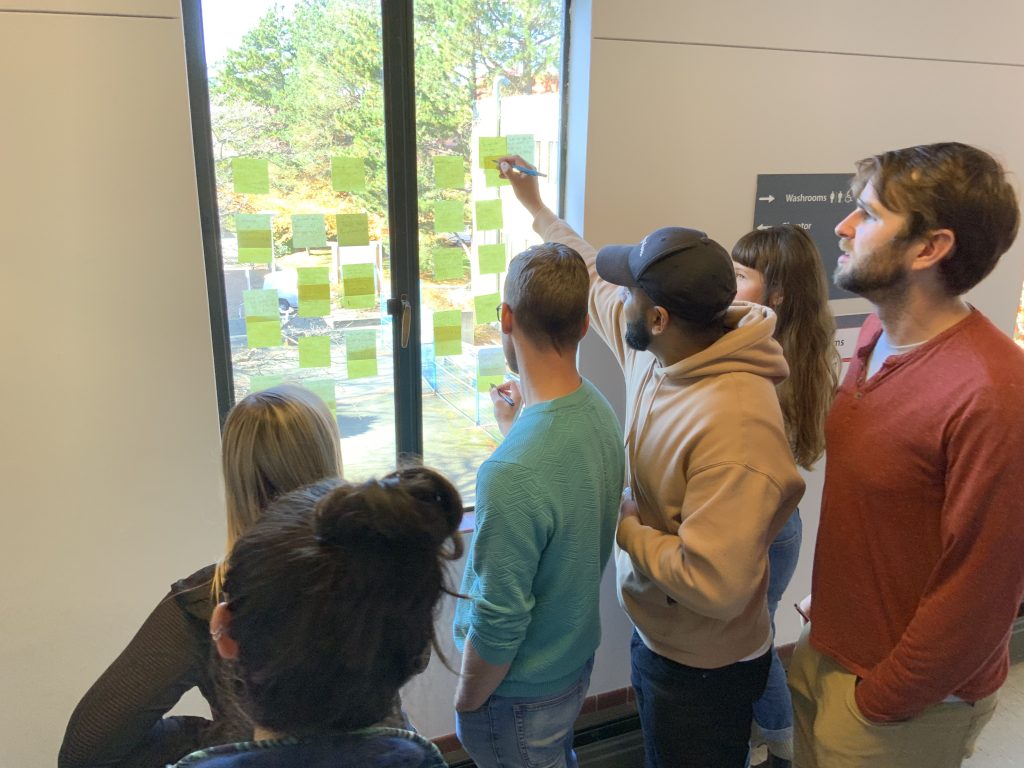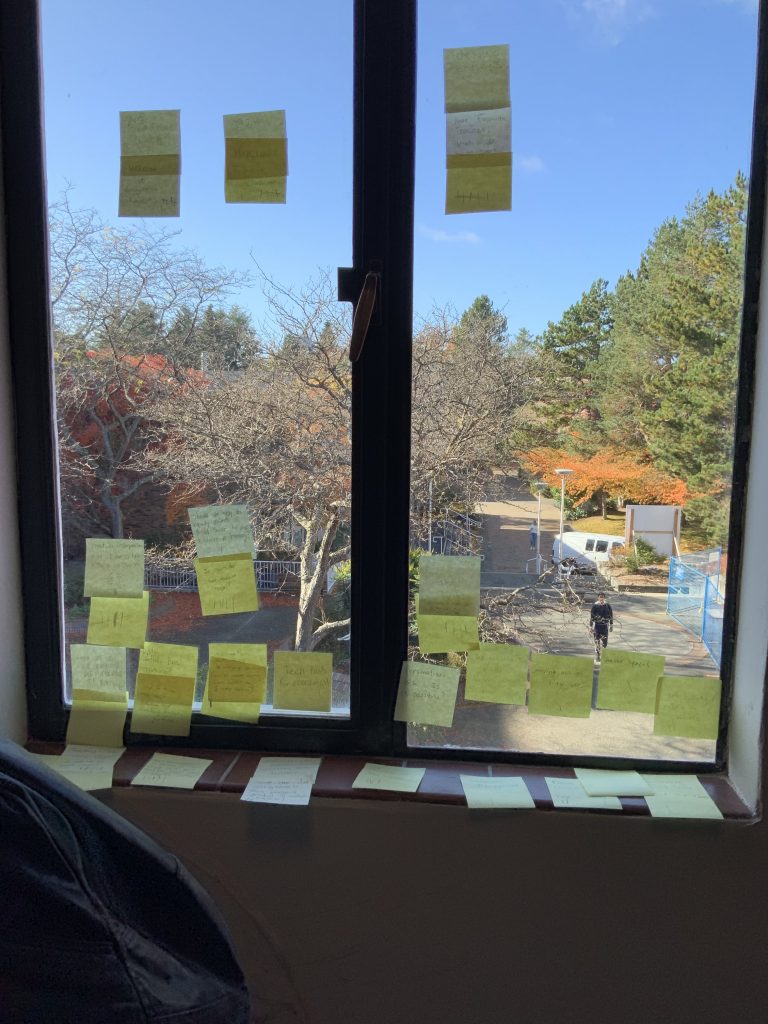
Today in 336, we learned about “edcamps,” which can be described as un-conferences for professional development and sharing about education. Edcamps are for teachers, for administrators, for parents, for students, for any stakeholders in the field of education. In a traditional conference-style learning environment, keynotes speakers give lecture-style presentations, and there is typically only time for conversation between attendees during breaks and lunch. Edcamps instead take a “bottom up” approach, building on topics in a group discussion format. Topics are suggested by the attendees, and then “up-voted” to determine which will be used for discussion groups. Edcamps are held on Saturdays, at schools, and there is no attendance fee to help keep them fully accessible to anyone wanting to attend.

We spent part of today’s class holding a mock mini-edcamp. Everyone wrote one or two topics on sticky notes and then stuck them to a window, then we all voted on 3 that we were interested in discussing.

Once the 3 most popular topics had been determined, locations were assigned to each, and we chose which one we wanted to discuss and then went to that location. I participated in a discussion about mindfulness in the classroom. Because all the members of my group had different ideas about the definition of mindfulness, we started there. The discussion quickly evolved and was enriched by having two participants who had done training in cognitive behavioural therapy. We did not have a facilitator, though some edcamps do, but I did not find that this was detrimental to our discussion at all. Another group expressed afterwards that they felt their group would have benefitted from a moderator to keep ideas on track. My take is that the natural evolution of topics made the discussion more interesting, but I can see how with certain larger groups it would be useful to help stay on topic and to prevent one person from dominating the conversation.
I left with the impression that edcamps are a great grass-roots alternative to bigger conferences.